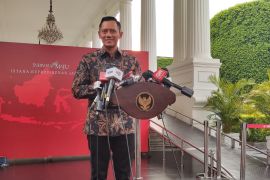The Indonesian House of Representatives will ratify the Nagoya Protocol through a law expected to be signed in May this year.Jakarta (ANTARA News) - Indonesia urgently needs to ratify the Nagoya Protocol to protect the rights of indigenous people, Miranda Risang, a law expert of Panjajaran University, said.
Indonesia would not be able to deal with biopiracy before ratifying the protocol, she said here on Tuesday in a media briefing on the Indonesian government`s plan to ratify the Nagoya Protocol.
Indigenous people are usually acting as protectors of biodiversity, therefore it is necessary to help the people who rely on biodiversity resources for their livelihoods.
"The Nagoya Protocol concerns this matter and gives justice to genetic resources owners. So far, we have not realized that our biodiversity have been stolen and used but we did not get the benefits," she said.
The Indonesian House of Representatives will ratify the Nagoya Protocol through a law expected to be signed in May this year.
The Nagoya Protocol on Access to Genetic Resources and the Fair and Equitable Sharing of Benefits Arising from their Utilization (ABS) to the Convention on Biological Diversity is a supplementary agreement to the Convention on Biological Diversity.
The protocol on ABS was adopted on 29 October 2010 in Nagoya, Japan. Its objective is to share fair and equitable benefits arising from the utilization of genetic resources, thereby contributing to the conservation and sustainable use of biodiversity.
Indonesia has signed the document of the Nagoya Protocol together with other 91 countries of the 193 member nations of the UN Convention. So far, only 14 countries have ratified the Protocol, which will enter into force 90 days after the fiftieth instrument of ratification.
"It is of utmost importance that we immediately ratify the Nagoya Protocol because it will give us an umbrella policy to help save our biodiversity," said Puji Sumedi, the agro-ecosystem program officer at Yayasan KEHATI, recently.(*)
Editor: Heru Purwanto
Copyright © ANTARA 2013











